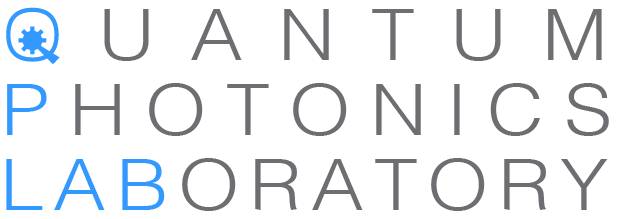PhD Scholarships available in the CQC2T at RMIT University
The ARC Centre of Excellence for Quantum Computation and Communication Technology (CQC2T) has PhD Scholarships available for prospective students.
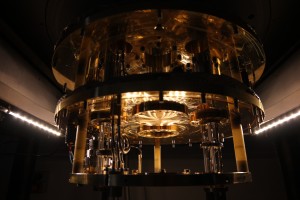 Following our recent success in demonstrating high-fidelity, chip-scale optical quantum information processing, this project will extend the current capability by adding on-chip single photon emission and detection.
Following our recent success in demonstrating high-fidelity, chip-scale optical quantum information processing, this project will extend the current capability by adding on-chip single photon emission and detection.
Candidates will have a degree in physics, material science, micro-nano technology, electronic engineering or equivalent.
For further information, please see: RMIT University
New CQC2T Labs Open at RMIT University
The Quantum Photonics Laboratory has joined the ARC Centre of Excellence for Quantum Computation and Communication Technology (CQC2T)
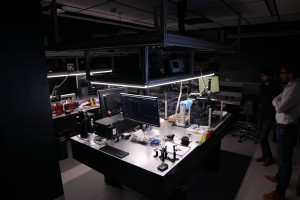
CQC2T is a research partnership between groups across Australia. The Centre is funded for 7 years to develop novel quantum technology.
New laboratories have been in preparation for the past year at RMIT University. Alberto Peruzzo will direct this node of the Centre with focus on developing photonics quantum technology.
The new research facility includes; quantum optics 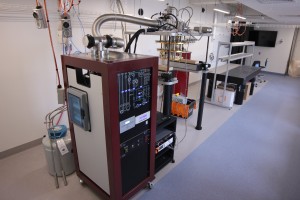 laboratories for single photon experiments; a wet lab with fume hoods, sample preparation tools and a dicing saw; prototyping laboratories; and a cryogenic laboratory with a 1 Kelvin cryostat.
laboratories for single photon experiments; a wet lab with fume hoods, sample preparation tools and a dicing saw; prototyping laboratories; and a cryogenic laboratory with a 1 Kelvin cryostat.
Congratulations Rob on Graduating!
Quantum Photonics Laboratory student Robert Chapman has Graduated his PhD!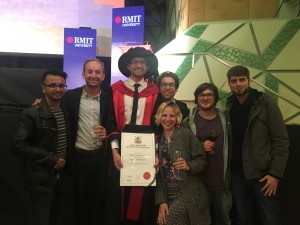
Rob has been working in the Quantum Photonics Laboratory since it’s formation in 2013.
During his PhD, Rob has published first-author papers in Nature Communications, Physical Review Letters, and Physical Review A.
Rob’s research focuses on algorithms and protocols for quantum information technology and performing photonic proof-of-concept experiments.
He is now working as a Postdoctoral Research Officer in the Quantum Photonics Lab.
New ultra-low loss waveguide platform published in Optics Express
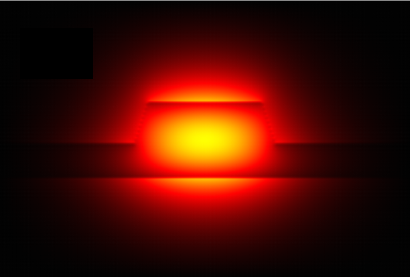
A new integrated photonics platform has been developed by the Quantum Photonics Laboratory at RMIT.
This platform enables great advancements in both academic research and in commercial telecommunications.
The research team has developed a new fabrication method to create highly compact photonic circuits in lithium niobate, one of the most promising materials platforms for integrated photonics.
Lithium niobate, the central platform for telecommunication technology, promises fast reconfigurable circuits and nonlinear optical signal processing. To date, however, lithium niobate devices have been limited by component size.
The new platform developed in the Quantum Photonics Lab allows highly compact circuits while achieving very low propagation loss; a key requirement for any integrated photonic technology.
These results have recently been published in Optics Express and have already been cited several times in a matter of weeks.
Quantum enhanced transmission over an amplitude damping channel published in Physical Review A
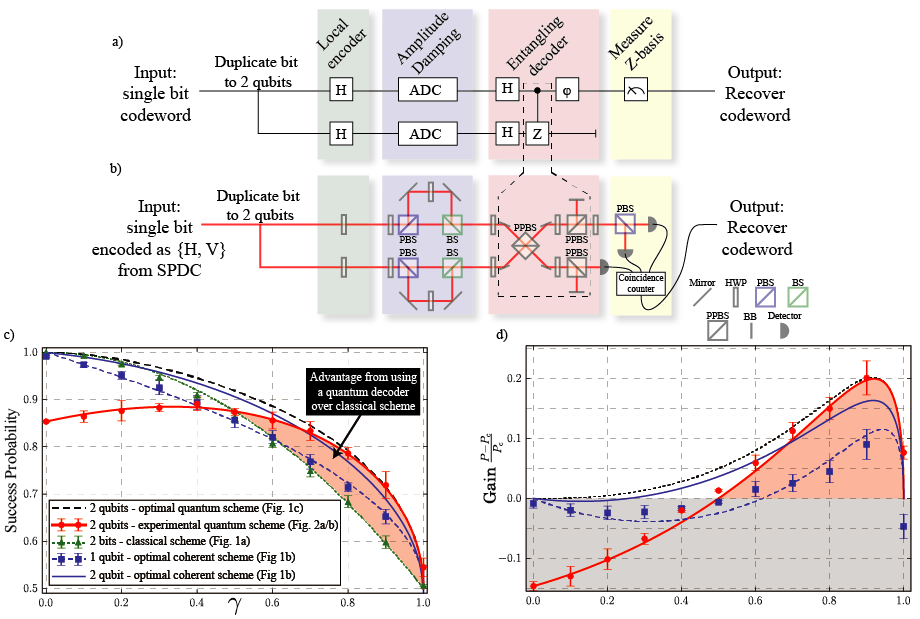
A new protocol demonstrating quantum enhanced robustness to noise has been implemented by the Quantum Photonics Lab
The novel scheme requires only one additional bit of data and entanglement to dramatically increase the data recovery probability.
When a single data bit is transmitted, the success probability is experimentally enhanced by over 20%.
Furthermore, when a two-bit message is transmitted, the enhancement is over 50% compared to optimal clasical protocol.
These key results have recently been published in Physical Review A.
QPLab member awarded RMIT Research prize
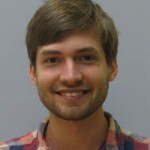 Congratulations to Robert Chapman for being awarded the prestigious 2017 Vice-Chancellor’s Prize for Research Impact.
Congratulations to Robert Chapman for being awarded the prestigious 2017 Vice-Chancellor’s Prize for Research Impact.
The RMIT Research Awards recognise and celebrate the research achievements of our staff and Higher Degree by Research (HDR) candidates.
New genetic algorithm to map the ‘edge of reality’ published in Physical Review A
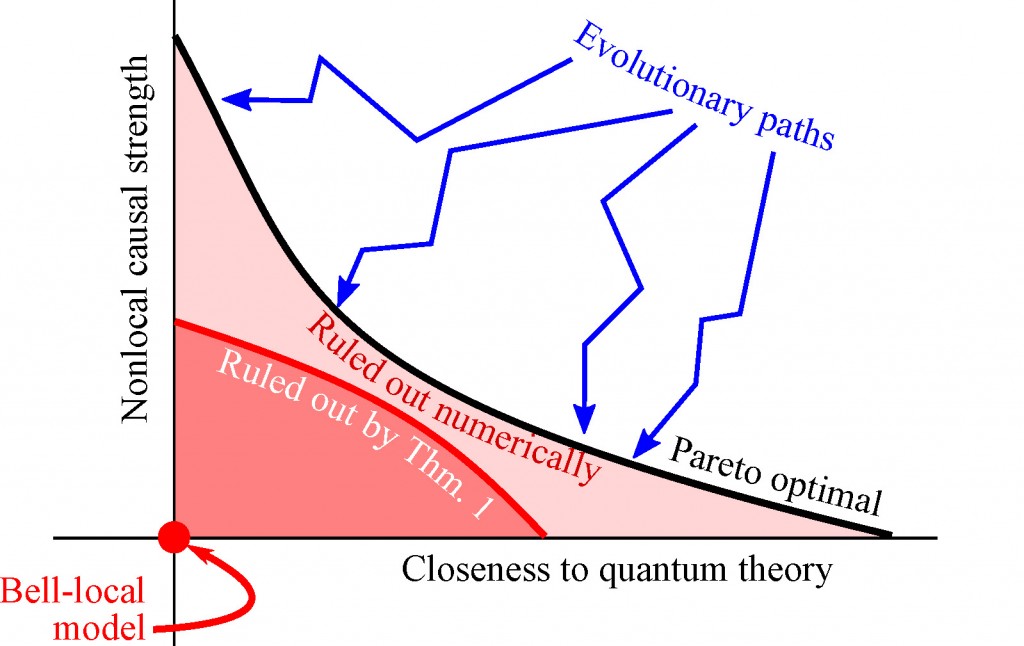
Australian and German researchers have collaborated to develop a genetic algorithm to confirm the rejection of classical notions of causality.
RMIT’s Dr Alberto Peruzzo said: “Bell’s theorem excludes classical concepts of causality and is now a cornerstone of modern physics.
“But despite the fundamental importance of this theorem, only recently was the first ‘loophole-free’ experiment reported which convincingly verified that we must reject classical notions of causality.
QPLab members awarded RMIT Research prizes

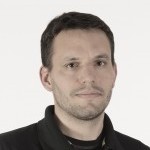
Congratulations to Andreas Boes and Robert Chapman, recipient of the RMIT Research Awards.
The RMIT Research Awards recognise and celebrate the research achievements of our staff and Higher Degree by Research (HDR) candidates.
QPLab Secures ARC Funding for Centre of Excellence in 2017
 The ARC’s seven-year budget will support nine new Centres of Excellence, which involve significant collaboration between universities, publicly funded research organisations, other research bodies, governments and businesses.The aim, according to the ARC, is to undertake highly innovative and potentially transformational research with the aim of achieving international standing and a significant advancement of capabilities and knowledge.
The ARC’s seven-year budget will support nine new Centres of Excellence, which involve significant collaboration between universities, publicly funded research organisations, other research bodies, governments and businesses.The aim, according to the ARC, is to undertake highly innovative and potentially transformational research with the aim of achieving international standing and a significant advancement of capabilities and knowledge.
RMIT researchers are chief investigators, leading collaboration across multiple universities, in three successful bids. Dr Alberto Peruzzo (School of Engineering) and Dr Nicolas Menicucci (School of Science) have secured funds for a new round of the Centre for Quantum Computation and Communication Technology. This centre will receive $33.7 million to implement quantum processors able to run error corrected algorithms and transfer information across networks with absolute security. The new technology is expected to provide a strategic advantage in a world where information security is of paramount importance.
Self-guided quantum tomography published in Physical Review Letters
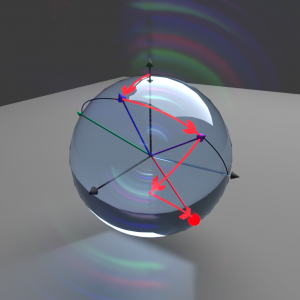 In this paper we report on the experimental demonstration of self-guided quantum tomography—a first of its kind iterative method to characterize quantum systems—and show its superior performance and robustness over standard quantum tomography in several photonic one- and two-qubit experiments. Standard quantum tomography requires storing and post-processing data from an exponentially large number of measurements, making this technique inapplicable for quantum states being prepared today. Moreover, it lacks robustness against inevitable statistical noise and measurement errors.
In this paper we report on the experimental demonstration of self-guided quantum tomography—a first of its kind iterative method to characterize quantum systems—and show its superior performance and robustness over standard quantum tomography in several photonic one- and two-qubit experiments. Standard quantum tomography requires storing and post-processing data from an exponentially large number of measurements, making this technique inapplicable for quantum states being prepared today. Moreover, it lacks robustness against inevitable statistical noise and measurement errors.
By iteratively learning the quantum state through a stochastic optimization algorithm, self-guided quantum tomography is far more resource efficient—thus can be applied to larger systems—and achieves higher accuracy thanks to its robustness against statistical noise and measurement errors.
Self-guided quantum tomography will likely be soon necessary in quantum experiments where standard quantum tomography is already unfeasible. Applications of the algorithm outside quantum tomography include state preparation and quantum device control. As automation will be critical for future quantum technologies, our demonstration takes an important step towards practical realization of autonomous learning.
